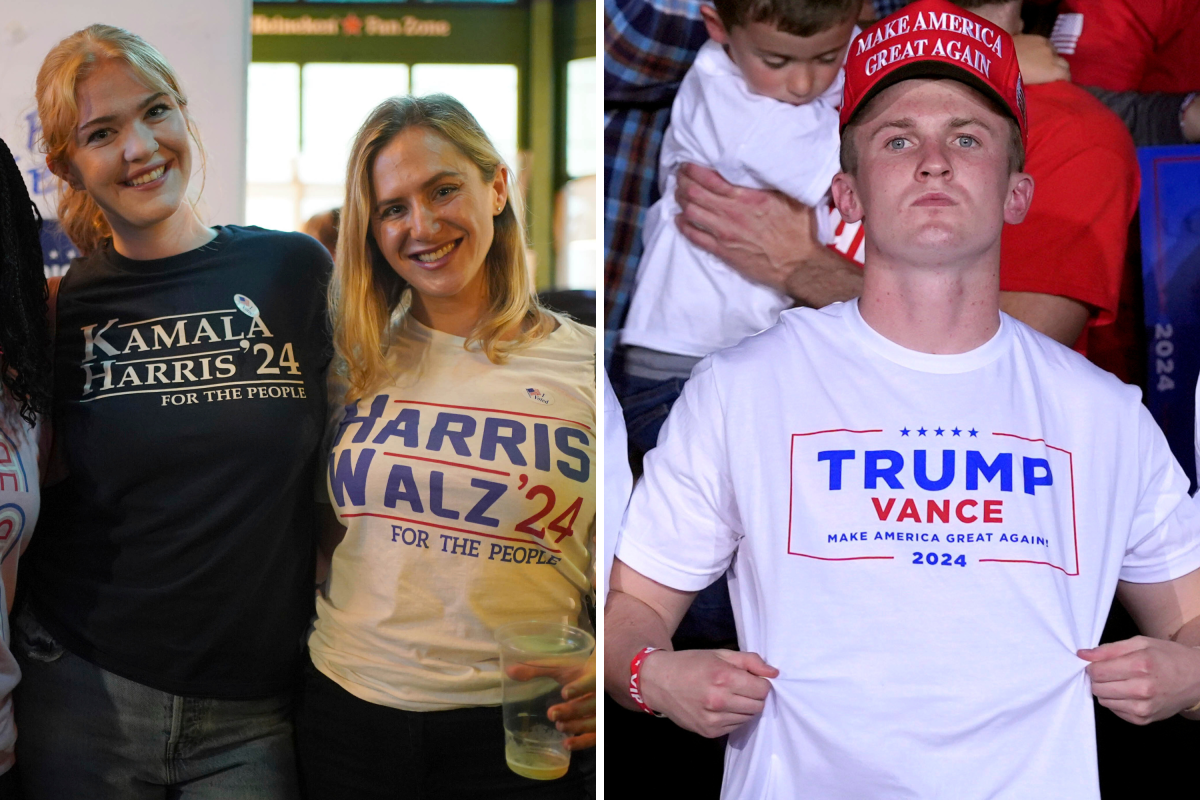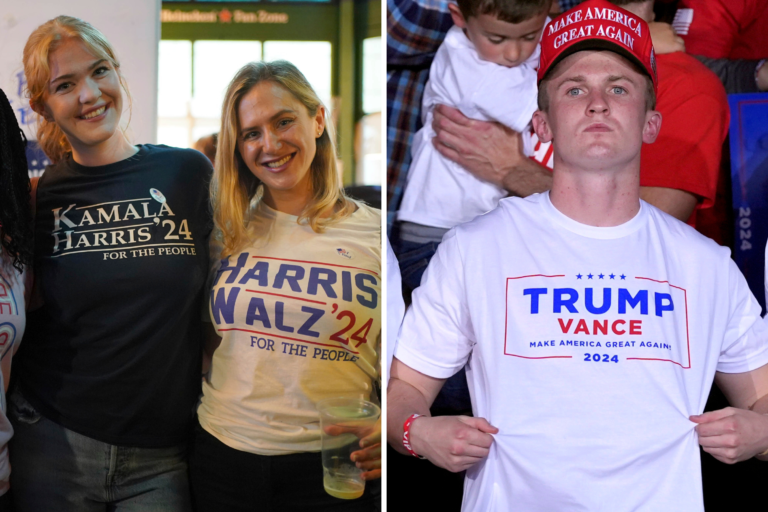The gender divide between Gen Z men and women continues to deepen, according to a new poll from the NBC News Decision Desk.
This poll shows that Gen Zers are split beyond just political beliefs, with cracks appearing when it comes to how they view success and key life decisions, including marriage and kids.
Why It Matters
America’s youngest generation has long been reckoning with an ideological divide, as young women tend to lean liberal while young men skew conservative.
This divide comes as Gen Z struggles increasingly with loneliness; a December study from consumer research company GWI declared Gen Z the loneliest generation, and found that roughly eight in 10 members of Gen Z said they had experienced feelings of loneliness over the last year.
This comes as Americans may be on the brink of a potential birth rate crisis. The country’s fertility rate is projected to average 1.6 births per woman over the next three decades, according to the Congressional Budget Office’s most recent forecast released this year, a number well below the replacement level of 2.1 births per woman required to maintain a stable population without immigration.

More
Press Association via AP Images/AP Photo/Evan Vucci, File
What To Know
NBC’s poll showed that the divide was the most pronounced when the generation was split by their political views.
Poll respondents were asked to rank 13 criteria about their personal definition of success.
Young male Gen Z voters who voted for Trump rated having children as the most important thing in their personal success definition; Gen Z women who voted for Harris, meanwhile, ranked this as the second least most important thing.
There was a similarly pronounced divide when it came to marriage, ranked in position four by Gen Z men who voted for Trump and ranked at position 11 by Gen Z women who voted for Harris.
Gen Z women who voted for Trump also ranked marriage and kids lower than Gen Z men, at positions nine and six, respectively. Gen Z men who voted for Harris ranked marriage and kids higher than Gen Z women did, at positions nine and 10, respectively, but there was less of a gap down gender lines in terms of how Gen Z Harris voters viewed success than in how Gen Z Trump voters did.
Newsweek spoke to John Della Volpe, the Director of Polling at the Harvard Kennedy School’s Institute of Politics about the study. He told Newsweek that “Gen Z is not just divided by party but by what they consider a meaningful life—for many men, that still includes traditional milestones, while for many women, it’s increasingly about independence and personal choice.”
There were some areas of overlap highlighted in the study, though, when the respondents were split only by gender.
Responding to the 13 criteria, Gen Z men and women had the same top three priorities: having a job or career you find fulfilling, having enough money to do the things you want to do, and achieving financial independence.
However, the same ranking still reflected gaps. For example, Gen Z men ranked being married and having children at positions seven and eight, respectively. For Gen Z women, they ranked marriage and children at positions 10 and 11, respectively, putting having no debt and being spiritually grounded at a higher ranking.
The poll was conducted between August 13 and September 1. It surveyed 2,970 adults aged between 18 and 29 nationwide and has a margin of error of plus or minus 2.2 percentage points.
What People Are Saying
John Della Volpe, the Director of Polling at the Harvard Kennedy School’s Institute of Politics told Newsweek over email: “Our Harvard Youth Poll (April 2025) shows that just 48 percent of young Americans say having children is important—the lowest-ranked life goal we measured—a clear sign of a generational shift in how success is defined.”
“What’s striking is the partisan and gender overlay: young Republicans, especially men, remain much more likely than Democrats to prioritize marriage and children, and they’re also more confident they’ll achieve those goals. Confidence matters because it fuels optimism, shapes identity, and influences political behavior. When young men believe the system can deliver on their priorities and young women doubt it, you end up with very different political worldviews.”
Mark Regnerus, a professor of sociology at the University of Texas at Austin, previously told Newsweek: “People are replacing the time historically spent with others with new digital habits… the smartphone is generating new and interesting content, which is slowly but surely supplanting the people around us. It’s the new fertility control regime, which wasn’t even intended. Expect more solitary living and a decline in local, state, and national unity. It’s happening already.”
What Happens Next
Young male voters have been expressing discontent with Trump’s second term; a CBS News/YouGov survey published in July found that Trump’s net approval among 18- to 29-year-olds had all but collapsed—from 55 percent in February to just 28 percent by July.
The fact that this demographic is increasingly disillusioned with the current administration could lead to the political gender divide being bridged, though the NBC poll indicates that there remains a significant generational gap.
Update 09/10/25, 06:06 a.m. ET: This article has been updated to include comment from John Della Volpe.


